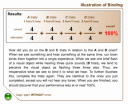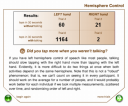SPIEGEL online points to a retrospective of former SCIENCE editor Daniel Koshland on the science typologies challenge, chance and charge.
Challenge – putting the pieces together like the discovery of the DNA structure of Watson & Crick.
Charge – solving longstanding ubiquitous problems like gravity laws by Newton, a rare event.
Chance – events like the development of PCR by Mullis.
I could add cha-uvinism (ignoring previous work), cha-os (also called creativity), cha-racter (???), cha-rity (work for nothing), cha-rade (also called congresses), cha-pter (many to write), cha-lk (many lectures), cha-nge (not really), cha-mpion (a few), cha-ir (less), cha-ff (most), cha-rts (hundreds), cha-t and cha-rivari (always), yea,yea.
CC-BY-NC Science Surf
accessed 18.02.2026




